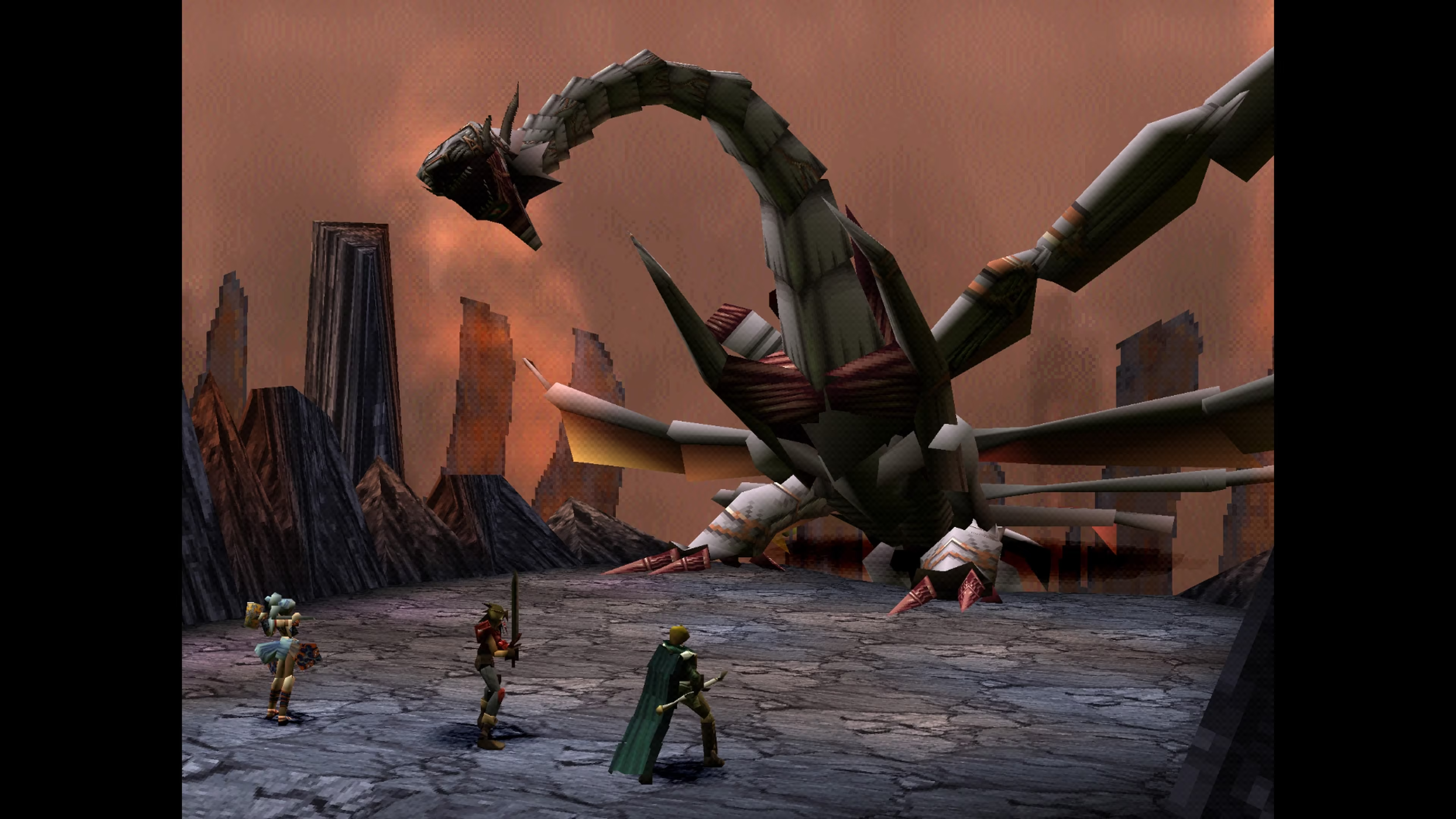Legend of Dragoon
Review: Legend of Dragoon – An Underrated Gem in the PS Classic Library
When it comes to classic games on the PlayStation, titles like Final Fantasy, Metal Gear Solid, or Resident Evil might immediately come to mind. These are the giants, the known legends that have cast long shadows over the gaming landscape. But lurking in those shadows, black-backsided four discs hidden yet gleaming, is a gem many have overlooked: The Legend of Dragoon.

Released in the year 2000, Legend of Dragoon was Sony’s attempt to craft a JRPG that could rival the titans of the genre. The game presented an expansive world that was beautifully rendered with the technology of its time. A tale of love, loss, and dragons. Our protagonist, Dart, embarks on a personal quest that swiftly spirals into a grand adventure involving ancient conflicts, dragoon spirits, and the fate of the world itself.
One of the first things a player might notice is the game’s commitment to narrative. Unlike some other titles where the story feels like an accessory, Legend of Dragoon seamlessly intertwines its narrative with gameplay. Every battle, every town, and nearly every NPC has a role in unfolding this epic tale.
The combat system, too, is notably distinct. While it incorporates the turn-based strategy familiar to JRPG enthusiasts, it introduces “Additions” – a combo system where players must time their button presses to maximize damage. I typically abhor Quick Time Events, because they destroy immersion? no because most of the time I am using cutscenes to do other stuff, but this mechanic added a layer of skill and engagement to the battles, ensuring players remained invested.

Graphically, the game was a visual delight for its time. The character designs were intricate, environments vast and varied, and the CGI cutscenes? They were nothing short of cinematic. The FMV sequences, particularly the transformations into Dragoon forms, were breathtaking, offering players a satisfying reward for their in-game achievements.
However, no game is without its flaws. Some players found the pacing a bit uneven, with certain sections dragging on longer than necessary. The voice acting, a budding art in the era of the PS1, had its moments of unintentional hilarity. But these minor imperfections did little to dim the brilliance of the game.

So, why then, did Legend of Dragoon not achieve the legendary status of its contemporaries? Perhaps it was overshadowed by other major releases. Maybe it didn’t get the marketing push it deserved. Or perhaps it’s charm is that of a cult classic, destined to be cherished by a select few.
Whatever the reasoning, Legend of Dragoon is a testament to the PlayStation’s golden age, a time when developers were pushing boundaries and exploring new horizons in storytelling and gameplay. For those who missed it the first time, it’s never too late to embark on this epic journey. And for those who remember, Dart and his companions await, ready to relive the adventure once more. Harpoon